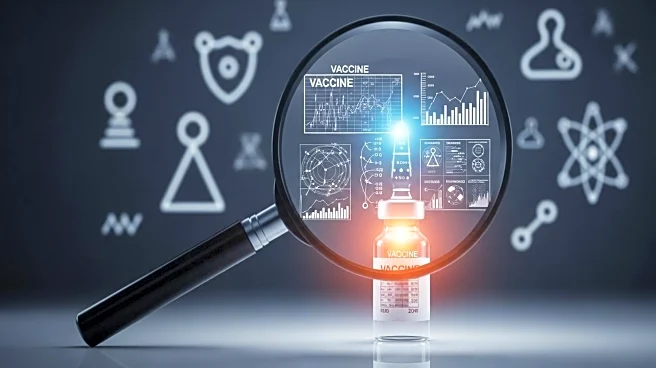What's Happening?
President Trump has called for pharmaceutical companies to publicly release data on the effectiveness of COVID-19 vaccines. This demand comes amid ongoing debates about the vaccines' success in preventing infections and saving lives. Trump, who initiated Operation Warp Speed in 2020 to accelerate vaccine development, expressed concerns over the lack of transparency from companies like Pfizer. The call for data release is set against a backdrop of divided public opinion on vaccine safety, with a significant partisan split in perceptions. The Centers for Disease Control and Prevention (CDC) has faced internal turmoil, with recent leadership changes and resignations linked to differing views on vaccine policies.
Why It's Important?
The demand for transparency in vaccine data could have significant implications for public trust in health institutions and pharmaceutical companies. It highlights the ongoing political and social divisions regarding COVID-19 vaccines, which have been a contentious issue in the U.S. The outcome of this demand could influence future public health policies and the pharmaceutical industry's approach to data sharing. Additionally, it may impact the political landscape, as vaccine skepticism remains a polarizing topic among different political groups.
What's Next?
The pharmaceutical companies' response to President Trump's demand could lead to increased scrutiny of vaccine data and potentially influence future regulatory policies. The situation may also prompt further investigations by lawmakers into the vaccine approval and distribution processes. Public and political reactions will likely shape the discourse around vaccine safety and efficacy, potentially affecting future vaccination campaigns and public health strategies.
Beyond the Headlines
The situation underscores the complex interplay between politics, public health, and corporate responsibility. It raises ethical questions about data transparency and the role of government in regulating pharmaceutical practices. The ongoing debate may also influence how future health crises are managed, particularly in terms of balancing rapid response with public accountability.








